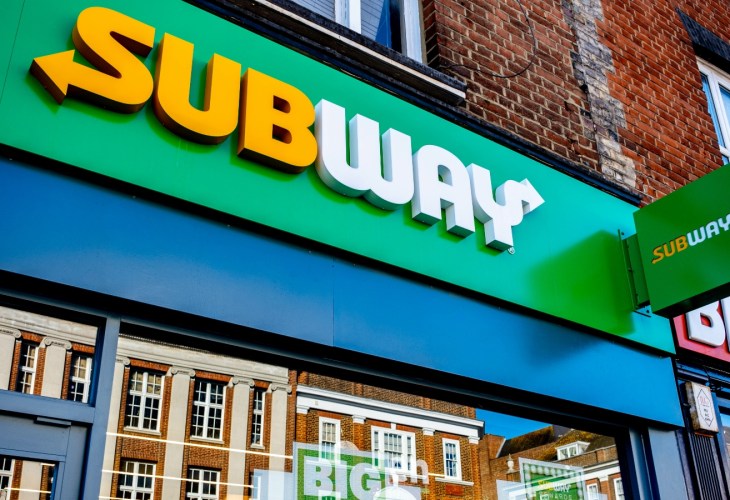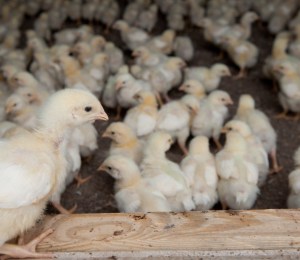Back in 2017, a popular food and drink brand caused a stir after penning a gushing Instagram post about dairy.
“We are for good quality, proper milk…we’re talking whole milk. Full fat milk,” it wrote. “We don’t use skimmed milk powder in any of our foods.”
The brand went on to describe cow’s milk as “the perfect balance of protein, good fats and natural sugars (lactose),” concluding that they “live life to the full, with full fat dairy products.”
These words didn’t come from a dairy milk or cheese company, but a supposedly progressive plant-based milk brand named Rude Health, which had, until then, been hugely popular with vegans.
The post understandably sparked outrage from vegans, most of whom had adopted the lifestyle because of the cruelty in the dairy – and other animal – industries. The situation was made worse when one of the brand’s founders called veganism “modern madness,” and described vegan films like What the Health as “propaganda.”
THIS controversy
It was truly shocking to see a company seemingly actively try to alienate its consumer base, but Rude Health was just one of the first of a number of brands to do so.
Last week, plant-based meat alternative company THIS came under fire after posting an advert that claimed to show a number of “vegans” eating what they were told were real meat products (they were actually the company’s vegan alternatives).
The video diluted and miscommunicated what veganism is, and THIS was heavily criticized in the comments. By showing a group of alleged vegans who are willing to eat meat, it sent a message that veganism is nothing more than a diet that can be dipped in and out of, rather than a movement seeking to end animal exploitation.
Things, again, were made worse after one of their staff members posted a picture of a bacon meal she was eating on her personal profile in response to the criticism the company had received.
She wrote: “After 24 hours as a vegan punching bag, I enjoyed every mouthful of these cheesy, creamy, bacon covered pierogi.” In its subsequent apology, THIS said that they were “genuinely, really sorry for undermining veganism with our silly marketing vid.”
THIS has since taken steps to amend and atone for this misfire in marketing, issuing a public apology.
Ethical veganism
Non-vegan companies have also used similar tactics to promote their plant-based food. When Subway released its “Meatless Marinara,” a plant-based version of its famous Meatball Marinara, it released an advert showing a group of meat-free members of the public taking part in a taste test.
As a ‘”joke,” the woman hosting the event then told the group that she’d accidentally given them the meat version. After a few moments, during which the people were shown looking understandably appalled, they were told that they were in fact the vegan versions.
These kinds of marketing tactics feed into the narrative that veganism is nothing more than a fad and something to poke fun of, which is a commonly held belief in our society. Adverts like these are likely created because of the prevailing idea that veganism is a trend, something that people are into now but probably won’t be soon. There is an assumption that vegans would be able to easily laugh off eating meat, rather than being deeply upset at the thought that their ethics had been compromised.
Flexitarianism in the vegan food scene
A decision to prioritise more occasional plant-based eaters over vegans is another reason why brands could be getting their marketing so wrong. There are thought to be around 23 million “flexitarians” in the UK, as opposed to around 600,000 vegans.
Oatly, an oat milk brand valued at $13 billion last year, recently shied away from the vegan label in a paid-for article in the Guardian. The piece included a quote reading: “As more of us move towards a plant-based life, our labels may need to shift to reflect a whole spectrum of new ‘normals’”. It said that “all or nothing” labels like vegan can be a “disincentive for us to make plant-based choices we’d otherwise be open to.”
It’s true that veganism is all-encompassing, but the article’s attempt to present that as a problem undermined the fact that it’s a movement to end animal cruelty and exploitation, rather than a simple dietary choice.
Oatly also caused controversy after promoting the label “part-time vegan” on its Instagram. This was criticized by many of its customers on the basis that ethical vegans cannot be “part-time,” and that being vegan means rejecting animal exploitation in every aspect of your life (where possible). Oatly later apologized, saying it was committed to bringing “as many people as possible into the plant-based camp,” but acknowledging that the post was a “failure.”
Veganism as a philosophy
These marketing misfires expose a deep rooted misunderstanding in our society of the fact that veganism is a philosophy and movement, not a fad or trend. It also seems that some brands are trying to attract the increasing number of flexitarian and plant-based consumers at the expense of the vegan customers who built the foundations for their success.
While it’s of course great news that more people are making small steps to eat less animal products, that doesn’t mean the vegan message should be undermined. Brands should find ways to promote their products without biting some of the hands that feed them.
The views and opinions expressed are those of the author and do not necessarily reflect the official policy or position of Plant Based News.














Leave a Comment
Plant Based News Comment Policy
In short:- If you act with maturity and consideration for other users, you should have no problems. Please read our Comment policy before commenting.